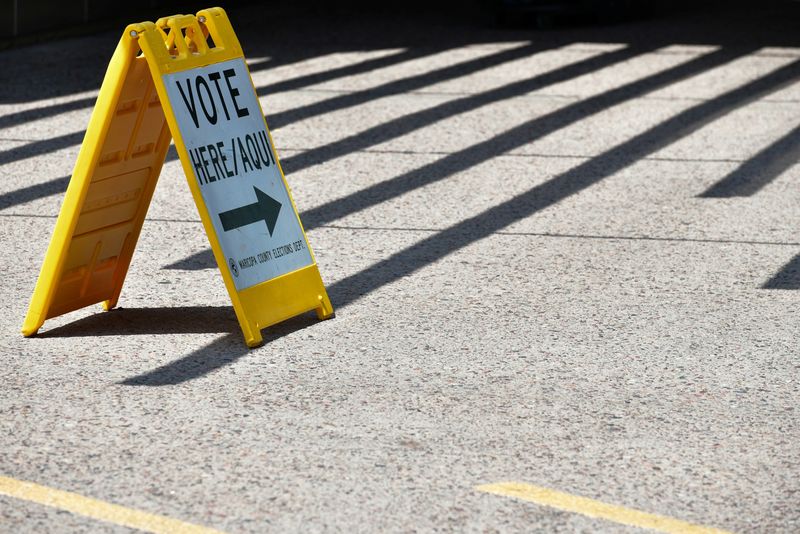By John Kruzel
WASHINGTON (Reuters) -The U.S. Supreme Courtroom on Thursday revived a part of an Arizona voter regulation requiring documented proof of U.S. citizenship to register to vote, in response to a request from the Republican Nationwide Committee and Arizona Republicans.
The justices agreed to reinstate a provision of the regulation after a federal choose blocked it in response to authorized challenges by Democratic President Joe Biden’s administration and advocacy teams.
The choice comes earlier than the Nov. 5 election through which Democratic Vice President Kamala Harris is going through off towards Republican former President Donald Trump, who continues to falsely declare that his 2020 election defeat was the results of fraud.
Arizona’s Republican-controlled legislature adopted new restrictions on voter registration in 2022. The regulation requires candidates who submit a federal registration type to offer proof of U.S. citizenship to vote in presidential elections or vote by mail in any federal election.
Voter registrants who use a separate, state-created type face even tighter restrictions. With out proof of U.S. citizenship, state purposes are rejected of their entirety, and officers who fail to take action face a minor felony cost beneath the regulation.
The Supreme Courtroom’s ruling revived the restriction associated to the state voter registration type, however stored intact a judicial choice blocking the supply that sought to tighten limits on the federal type.
When Republican then-Governor Doug Ducey signed the laws in March 2022, he stated the measure balanced voting accessibility with election safety.
“Election integrity means counting every lawful vote and prohibiting any attempt to illegally cast a vote,” Ducey stated.
The Biden administration sued to dam the Arizona regulation in July 2022, claiming it’s outdated by a 1993 federal regulation known as the Nationwide Voter Registration Act. The regulation says that states should register voters for federal elections after they submit the federal registration type, which requires a declaration of U.S. citizenship beneath penalty of perjury, however not documentary proof.
A separate authorized problem argued that the Arizona regulation violated a 2018 court-approved settlement requiring state election officers to register voters who lack documented proof of U.S. citizenship for federal elections, no matter whether or not they use the federal or state type.
The Republican Nationwide Committee and Arizona’s prime Republican lawmakers intervened to defend the regulation.
Phoenix-based U.S. District Choose Susan Bolton in September 2023 sided with the Biden administration and different plaintiffs of their problem to Arizona’s proof of citizenship necessities. She blocked the state from barring federal-form candidates from voting for president or voting by mail, or rejecting state-form purposes, for missing citizenship documentation.
A 3-judge panel on the San Francisco-based ninth U.S. Circuit Courtroom of Appeals that reviewed the case on its deserves declined to halt Bolton’s ruling. This prompted an emergency Supreme Courtroom submitting from the Republican Nationwide Committee and Arizona Republicans.
Arizona’s lawyer basic and secretary of state, each Democrats, opposed the Republicans’ request to the justices.
Arizona, which is anticipated to be probably the most aggressive states within the November election, has been a flashpoint within the U.S. battle over voting rights.
A broadly criticized Republican evaluation of the 2020 presidential election discovered no proof that irregularities marred Biden’s slim victory over Trump.
Arizona enacted a regulation in 2005 requiring new voters to offer proof of citizenship, however the U.S. Supreme Courtroom dominated in 2013 that the state couldn’t impose that requirement on those that used a federal type to register. Since then, the state has allowed these voters to take part solely in federal elections, not state or native races.

Arizona had greater than 42,000 “federal only” registered voters as of July 1, in accordance with state information.
The Republican-controlled U.S. Home of Representatives earlier this yr handed the same invoice requiring proof of citizenship to register to vote in elections, but it surely went nowhere within the Democratic-majority U.S. Senate.




